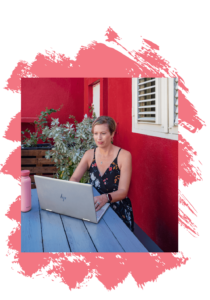We all know high-quality sleep is vital for both healing and sustained
wellness. While the body appears from the outside to be still and inactive, sleep is a time when the body is quite busy. During the night, we restock our supply of hormones, process significant toxins, repair damaged tissue, generate vital white blood cells for immunity, eliminate the effects of stress, and process heavy emotions.
Unfortunately, we have an epidemic of sleep disorders – from trouble falling asleep to often-interrupted sleep to actual insomnia. There are, however, several straightforward remedies that can help.
Whenever a client is struggling with sleep, it is always an upfront priority I recommend they pursue in their healing journey. Sleeping soundly also often increases our motivation to make further lifestyle changes (e.g., when well rested, it is always easier to eat more healthily).
Sleep is ultimately a gift of the pineal gland! We fall asleep due to the gifts of the pineal gland, a small ant-sized lobe near the middle of our skull in the interbrain. Following our circadian rhythm, the pineal gland secretes a neurotransmitter and hormone called melatonin. Melatonin suppresses the activity of other neurotransmitters and helps to calm the brain (in part by countering the stress hormone cortisol from our adrenal gland). And as we become drowsier, the brain slowly begins to turn off our voluntary skeletal muscle functions, so we don’t move around too much and try to act out our dreams or disrupt the body’s internal revitalization work. (Note this is also why it’s so hard to move your limbs or shout out in response to a nightmare.)
For ideal sleep, melatonin should rise steadily, and cortisol should be rock-bottom low at bedtime. But there’s a catch: the pineal gland secretes melatonin largely in response to darkness. And our evening cortisol levels are lowest in environments with low noise. With our addictions to TV, video games, and email in the evening, however, our evening activity choices can get in the way of these natural pro-sleep chemical shifts. These devices mostly display full-spectrum light which can confuse the brain about whether it’s night-time or not. We also, unfortunately, tend to watch shows or view emails that can be loud and/or stressful (e.g., the evening news, crime shows, work email, or ever-longer to-do lists). Digesting a heavy meal eaten later in the evening can also prevent or interrupt sleep.
We see over and over again the power of these “sleep hygiene” principles to improve or fully remedy poor sleep. Simple changes can be quite powerful.
- Choose more calming, quieter evening activities that resonate with you and help you to relax, both mentally and physically (e.g., reading a book, taking a bath, going for a light stroll outdoors, playing with a pet, folding laundry).
- Turn off all full-spectrum lights for a full 1-2 hours before bedtime. This means no email, TV, or smartphone apps.
- Avoid amping up your brain. Avoid activities such as budgeting, balancing your checkbook, next-day planning, or stressful conversations the full hour before bedtime. I also recommend no caffeinated food or drink at all after 2 pm (e.g., tea (even green), coffee, soda, chocolate, mate); yes, it *can* affect you that many hours later.
- Make it quiet but not too quiet. If noise is an issue in your bedroom (too little OR too much), I often recommend soft foam earplugs and/or the white noise of a fan.
- Mind the temperature. Rooms that are too hot or too cold tend to wake us up. In addition to waking us up to mess with the bedding, temperature extremes naturally increase our stress hormones which promote wakefulness.
- Have a relaxing ritual at night. Herbal tea (e.g., lavender, chamomile, valerian, passionflower) can help one to relax and set the tone for sleep. A hot bath with Epsom salts may work well. Or 10 minutes of gratitude journaling or reading an inspirational or spiritual book.
- Quiet the digestion. This is a particularly powerful one that surprises many. For clients with insomnia or light, restless sleep, I recommend no food at all for a full three hours before bed.
Using these foundations can have a dramatic effect on your sleep. What is your favorite tip for better sleep?
I love hearing from readers and hope you found this blog helpful. Please let me know in the comments.
Please share this post with anyone you think might benefit from it and share on social media.
Give the gift of health this year. Vital You helps empower you to understand what’s up with your body and make educated decisions for your health. This personalized, 1:1 90-minute deep dive into your health to help you get answers and provide actionable steps to what’s going on with your body. Vital You is a great gift for yourself or a loved one. Limited Holiday pricing.





